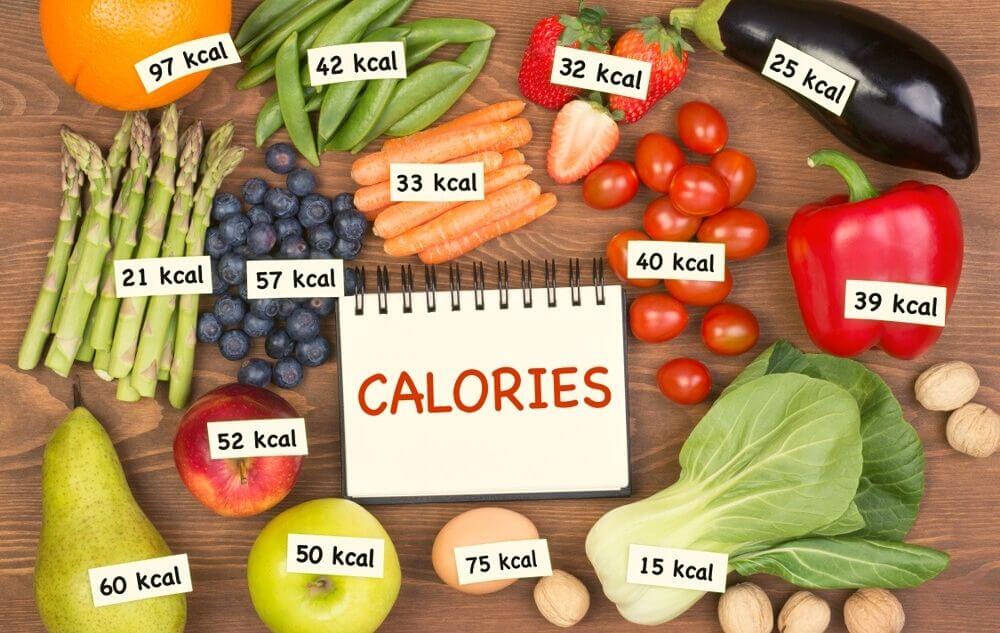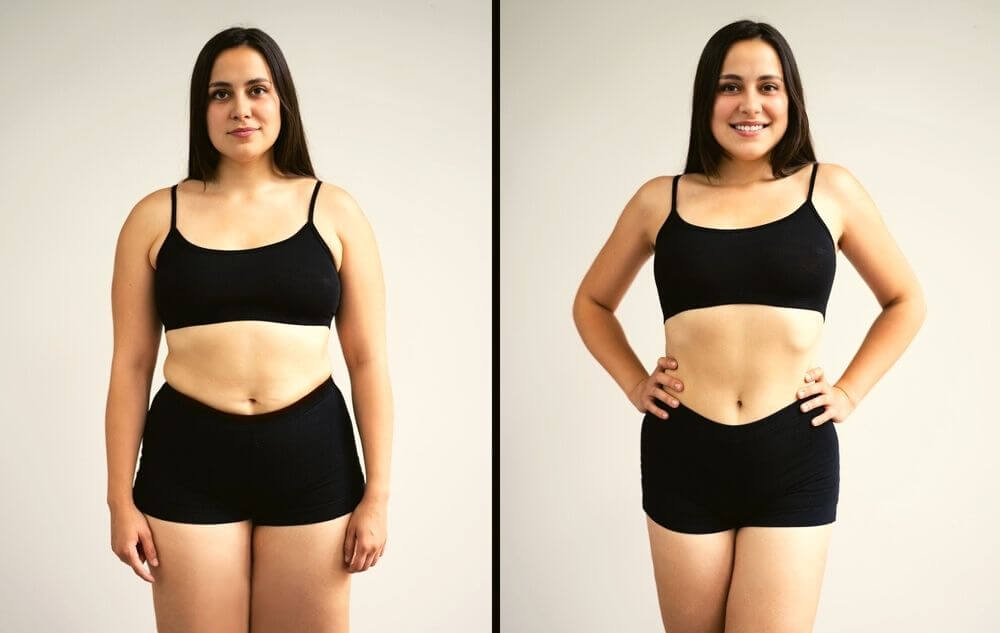Looking to lose weight? Thinking about eating 500 calories a day for a month? But wondering if it’s worth the try?
Well, you have chosen the correct read! The 500-calorie diet plan is usually recommended to people with extreme obesity or health risks. It can be advantageous for individuals looking to improve their health. Otherwise, this diet has also been life-threatening for some people.
So, before trying out this weight-loss method, let us tell you about all the perks and cons of this low-calorie diet to ensure your health and safety.
Read on to know more!
A Little Bit About Calories

It would help if you had a basic understanding of calories to understand this article better. So, did you know that a vast number of calories can be found in everyday foods?
For example, about 250 calories can be found in a serving of peanuts or a slice of pepperoni pizza. This is according to the USDA. While an apple has less than 80 calories, fried chicken has more than 400.
You can almost guess how much or how little your everyday calorie intake is, right? But that is not it; you should also know how many calories you are burning. According to the Harvard Medical School, sitting in a one-hour meeting burns 72 calories.
What is a 500-Calorie Diet?

The 500-calorie diet is an extremely low-calorie diet that aims to restrict your caloric intake. The diet replaces typical everyday food with liquid supplements, bars, and shakes. It will aid your body to utilize stored fat as a fuel source. You’ll be able to lose weight as a result of this drastically.
Remember, each body is different and needs to consume different amounts of calories to perfectly function and achieve the desired result. Without a medically prescribed diet plan, it is impossible to reach your goal.
So, acknowledge consultation with your doctor before trying out any diet chart.
Now, let’s get right to the pros.
You may also like: Is Losing 10 Pounds in a Month Healthy?
The Pros:
VLCDs, standing for Very Low-Calorie Diet, can assist you to reshape your body’s metabolism. It helps you lose weight by increasing fat oxidation. It is possible to lose weight quickly on a 500-calorie diet.
If you’re concerned about your health, this is a terrific option. However, the 500-calorie diet does not offer many advantages because of its extreme caloric limits.
But, what if you’re on this diet even though you don’t have to be on it? This diet can be detrimental to your health and come with several dangers. Health risks might occur if you do this without medical supervision.
The Cons:
There are more than a few drawbacks to this diet. They are:
Risk of Nutritional Deficiency:
The increased risk of nutritional inadequacies is a trait of nearly all very-low-calorie diets. Consuming only 500 or fewer calories per day for a month may put your nutritional status in danger.
According to a study published in Nutrition Journal, following this diet for a month may result in a deficiency in several vital vitamins and minerals like Serum vitamin D, vitamin C, and zinc levels.
Constipation might result from a deficiency of fiber in your diet. It will weaken your body’s immune system, making you more susceptible to various illnesses. Diarrhea and vomiting are also possible side effects, including exhaustion and a change in the menstrual cycle.
People in specific demographics may be at greater risk. Older individuals may be more vulnerable since their tiny intestines are more likely to absorb poor nutrients.
Remember that malnutrition can lead to various health issues, even if you lose weight. Eating fewer calories than you expend, exercising regularly, and limiting the amount of food you eat are essential components of a healthy weight loss plan.
Decrease in Bone Health:
Due to the short-term nature of VLCD consumption, it is impossible to determine the long-term consequences on bone health. However, a study found that those who lose weight on a low-calorie diet also lose bone mass.
An analysis of 48 adults on calorie restriction for an extended length of time found decreased bone mineral density and diminished bone strength, resulting from weight reduction.
Moreover, the bones can get weaker over time if they do not receive the necessary minerals and nutrients.
Decrease in Muscle:
So, you’d like to shed some weight. Then, focus on losing fat, not muscular mass. Muscle loss is a possibility if you stick to a 500-calorie diet. If it is continued for a more extended period, it can make your skin appear loose and floppy, giving you the appearance of being slim.
But practicing this, your metabolism might also be significantly impacted by a decrease in muscle mass. Keep in mind that while muscle loss may initially appear to be a weight loss, not all weight loss is good.
Muscle building is essential for good health. Fat is a primary energy source whose loss can cause help shed those extra pounds when following a nutritious diet.
Meanwhile, you should know that a person’s capacity to avoid injury is harmed due to this unwelcome side effect. When it comes to long-term weight loss, building lean muscle and eating a healthy diet is frequently the best strategy for success.
Production of Gallstones:
Gallstones are more likely to form in people who eat a diet of fewer than 500 calories each day. Researchers in the International Journal of Obesity found that adopting a VLCD diet for more than one year resulted in stones in the gall bladder.
They can obstruct the bile duct, resulting in discomfort in the abdomen. As a result, many adults had to have their gallbladders removed.
Gallstones can be prevented by eating meals high in fiber and cutting back on refined carbohydrates and sweets.
Decreased Consumption of Healthy Fats:
Fat is the most caloric of the three macronutrients (fat, protein, and carbs). Feeling full and maintaining good health is enhanced when you consume healthy fats in small, frequent servings.
Deficiency in fat-soluble vitamins like A, D, E, and K can occur while following a low-calorie diet. Vitamin E deficiency and inadequate antioxidant absorption can occur on a low-fat diet, as can vitamin D deficiency.
This diet also restricts the intake of beneficial fats, as healthy fats are omitted from a low-calorie diet to cut back on calories that aren’t necessary.
The high caloric content of fats, like Salmon and lentils, which are vital in unsaturated fats, are beneficial to the human body. But it becomes challenging to consume these good fats on such a limited calorie diet.
VLCD Can be Expensive:
Surprisingly, no matter how much you cut off whole meals, the price per pound of VLCD is significantly higher on the 500-calorie diet, even if you consume less.
Meal replacements, such as Optifast, can be rather expensive compared to the same amount of real food.
Supplements are Not a Solution:
Now you have understood that meal replacements are occasionally used as a one or two-meal replacement option for people on a low-calorie diet. Consuming these for a month can harm your health.
When you eat whole foods that contain vitamins, minerals, and micro-nutrients, they interact in the body in crucial ways. Artificial foods cannot replace these essential interactions. And by that, we mean supplements and bars can never be a solution.
Inadvisable for People with Illness:
Doctors do not recommend VLCD and meal replacement products for obese or morbidly obese patients with specific medical issues. A 500-calorie diet is not safe for many people because of its excessive restriction.
It should not be attempted without a doctor’s advice and supervision. If you have any of the following conditions, you should steer clear of this diet:
Type 1 diabetes, thyroid illness, kidney disease, heart disease etc.
You may also like: Are Sumo Wrestlers Healthy?
How to Safely Lose Weight

Losing weight safely takes time, and it usually involves healthy eating. But these diets usually entail a 500-calorie cut every week, rather than only eating 500 calories per day. Instead of trying out these extreme diets, take time to understand your body and nutrition.
Maintaining a diet to lose weight works best when paired with adequate exercise. Pick an activity that you enjoy and get moving. Start by working out ten minutes before increasing it gradually.
Frequently Asked Questions (FAQs)
What are signs of not eating enough?
There are numerous signs including lack of energy, constant hunger, sleep problems, constipation, hair loss, and irritability.
How much weight will one lose on 500 calories a day?
You’ll lose around 1 pound a week.


